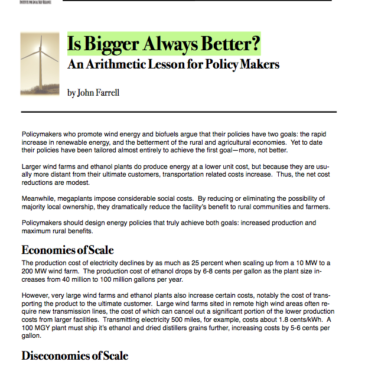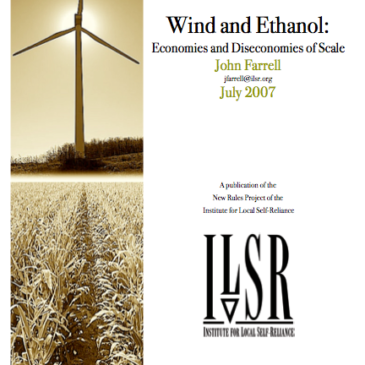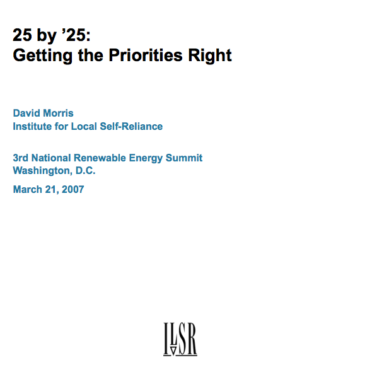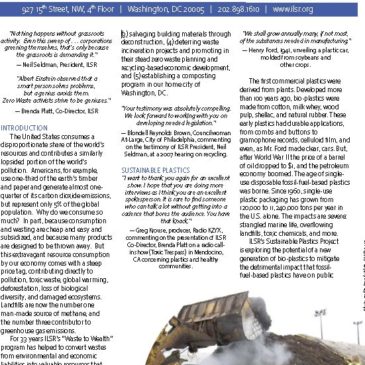A growing number of opinion leaders are rallying behind the argument that only federal leadership can stop the United States’ slide into broadband oblivion. In a widely circulated document, attorneys Jim Baller and Casey Lide set out their plan for developing a National Broadband Strategy, the crux of which is a blue ribbon task force that would establish national goals, and develop recommendations on how to get there. So far, the most substantial Congressional movement is West Virginia Senator John D. Rockefeller’s resolution advocating legislation toward this end.
It’s impossible to be against setting up a blue ribbon task force. Certainly, we need a national discussion about how to best use public assets, in particular the airwaves and rights of way, to rapidly expand broadband access. But we object to the way the discussion is being framed.
… Read More









